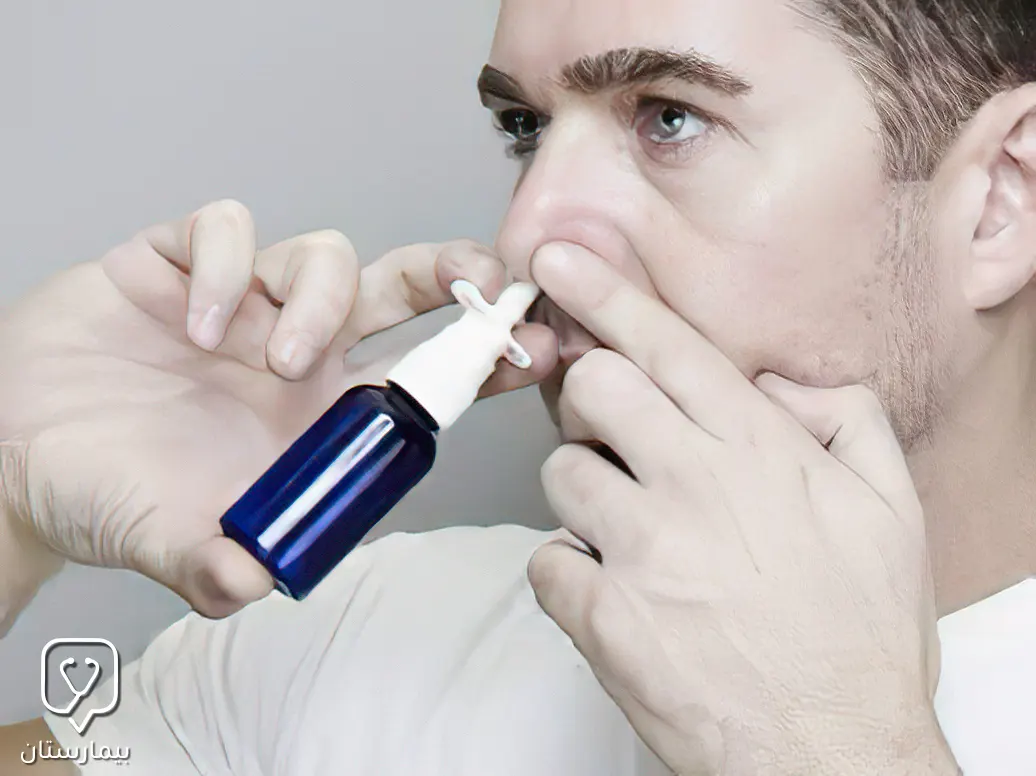إن احتقان الأنف هو مشكلة شائعة كثيرة الانتشار تسبب ازعاج لمن يعاني منها وتترافق مع أعراض أخرى كسيلان الأنف وضيق التنفس، يتم علاج انسداد الأنف في تركيا بعدة طرق.
لمحة عامة
يعرف الانسداد الأنفي بإعاقة جريان الهواء عبر فتحتي الأنف بسبب انتفاخ الأوعية الدموية واحتقانها ضمن الأنف مما يؤدي لزيادة إفراز المخاط الذي يتجمع ويسبب انسداد وصعوبة بجريان الهواء.
إن الاحتقان الأنفي هو عرض شائع للكثير من الأمراض والحالات الطبية، كما أنهُ يشاهد بكثرة عند الاطفال والكبار على حدٍ سواء.
يسبب انسداد الأنف شعور بعدم الارتياح عند الذين يعانون منهُ، وقد يترافق مع أعراض أخرى كالسيلان الأنفي، العطاس، الشخير أثناء النوم، ضيق التنفس.
تتعدد الأسباب التي تؤدي إلى حدوث الاحتقان الانفي ومن أهم تلك الاسباب هي الإصابة بالعدوى التنفسية كالزكام أو فيروس الانفلونزا بالإضافة إلى التهاب الجيوب الانفية أو الحساسية لبعض المنبهات كغبار الطلع.
معرفة السبب الذي أدى لحدوث الاحتقان ضمن الأنف ضروري لوضع الخطة العلاجية المناسبة، حيثُ أن علاج السبب يؤدي إلى زوال الاحتفان.
تتوفر وسائل عديدة لتدبير وعلاج الانسداد الأنفي منها ما هو مُقتصر على تطبيق بخاخات أنفية تعمل على ترطيب الأنف وتجنب جفافهِ أو عبر بخاخات ستيروئيدية تخفف من الاحتقان.
في بعض الحالات النادرة يتم اللجوء لعمل جراحي في حال ترافق الانسداد مع عيوب تشريحية أو بوليبات أو أورام.
أسباب انسداد الأنف
توجد أسباب عديدة تؤدي لتهيج واحتقان الأوعية الدموية الانفية أهمها وأكثرها شيوعاً هي العدوى الفيروسية التي تصيب الجهاز التنفسي العلوي (كالزكام أو الانفلونزا).
يوجد أسباب أُخرى تؤدي للانسداد الأنفي كالتهاب الجيوب المزمن، لنستعرض أهم أسباب حدوث انسداد الأنف:
- العدوى البكتيرية أو الفيروسية (نزلات البرد)
- الحساسية لبعض المنبهات (كالحساسية لغبار الطلع أو بعض الحيوانات)
- التهاب الجيوب
- انحراف الحاجز الأنفي
- استنشاق جسم أجنبي خاصةً عند الأطفال
- التهاب الأنف الدوائي (الناتج عن الاستعمال المديد لمضادات الاحتقان)
- التهاب الأوعية الدموية الأنفية
- الحمل أو الربو
علامات انسداد الأنف
إن انسداد الأنف هو غالباً ما يكون عرض لمرض آخر، لكنهُ يترافق في معظم الحالات مع الأعراض التالية:
- السيلان الأنفي
- تجمع المخاط
- العطاس
- تورم الأنسجة الأنفية
تشخيص انسداد الأنف
يقوم الطبيب بتشخيص انسداد الأنف عن طريق الأعراض والفحص السريري للمريض، يفحص الطبيب الأنف والأذن والحنجرة لتحديد سبب حدوث الاحتقان الأنفي.
يستخدم الطبيب في الفحص منظار الأنف وهو عبارة عن أنبوب مرن يحوي مصباح وكاميرا بحيثُ يسمح للطبيب برؤية وتقييم الأنف من الداخل.
في بعض الحالات قد يطلب الدكتور صورة طبقي محوري للرأس للمساعدة في تقييم وجود جسم أجنبي بالأنف، قد يتم أيضاً أخذ مسحة من الحلق لنفي وجود أمراض تسبب الانسداد الأنفي كفيروس كوفيد المستجد.
طرق علاج انسداد الأنف
يُمكن علاج انسداد الأنف عبر الاكتفاء باستعمال محلول ملحي على شكل قطرات أو المرطبات للتقليل من جفاف الأنف الناتج عن الانسداد، يُمكن في بعض الأحيان وخاصةً عند الأطفال استعمال جهاز يشفط المخاط لمنع حدوث تجمع وانسداد أنفي.
من الأفضل أن تستشير طبيبك قبل البدء بـ علاج احتقان الأنف دوائياً لأن بعض الأدوية المستخدمة في العلاج قد يكون لها تأثيرات جانبية في حال استخدمت بشكل مديد.
تصنف طُرق علاج انسداد الأنف إلى ما يلي:
العلاجات المنزلية
تتوفر الكثير من طرق العلاج المنزلية للتخلص من الشعور المزعج بانسداد الأنف، وتفيد أيضاً المعالجة بالأعشاب الطبيعية في إزالة الاحتقان الانفي وتخفيف أعراض الانسداد.
في حال شعرت بأن أنفك مسدود أو جاف حاول إبقاء الممرات والجيوب الأنفية رطبة قدر المستطاع إما عن طريق استخدام مرطبات أو عبر الإرذاذ المتكرر.
الاستحمام لفترة مطولة واستنشاق البخار من الماء الساخن يساعد في منع حدوث جفاف بالأنف، بالإضافة لذلك فإن شرب كميات كبيرة من السوائل يساهم في تليين المخاط الأنفي مما يساعد في منع انسداد الجيوب الانفية.
وضع منشفة رطبة على الوجه يساعد أيضًا في فتح المجاري الأنفية.
النوم بإسناد الرأس على وسادتين يبقي الرأس مرتفعاً مما يجعل التنفس أكثر سهولة ويساهم في علاج انسداد الأنف عند النوم، يمكن أيضاً وضع جهاز على الوجه يقوم بإصدار موجات اهتزازية لإعطاء شعور بالراحة.
إضافةً لما سبق يوجد العديد من خيارات العلاج الطبيعية كالعلاج بالأعشاب، حيثُ يمكن علاج انسداد الانف في المنزل عبر تناول خلطات منزلية حاوية غلى خل التفاح الذي يلعب دوراً جيداً كمزيل لاحتقان الأنف.
يمكن تحضير خلطة خل التفاح عبر مزج خل التفاح مع العسل بالماء الدافئ وشرب هذه الخلطة.
أثبتت الدراسات أن اسنتشاق نبات الثوم لا يعتبر من وسائل علاج انسداد الأنف كما تشير إليه الشائعات بل أنه قد يزيد من شدة الاحتقان الأنفي.
العلاج الدوائي
تتوفر العديد من الأدوية التي تعمل كمخففات للاحتقان الأنفي ومنها:
مضادات الاحتقان: تعمل مضادات الاحتقان على التخفيف من تورم الممرات الأنفية وتقليل الاحتقان، تعطى هذه الأدوية على شكل بخاخات أنفية كالنفازولين، أوكسي ميتازولين، وقد تعطى على شكل أقراص فموية كالفينيليفرين.
مضادات الهيستامين: إن الاستطباب الأساسي لمضادات الهيستامين هو في حال كان السبب وراء الانسداد الأنفي عائد لمشكلة تحسسية، تعمل مضادات الهستامين على تخفيف الأعراض التحسسية مثل سيلان الأنف والعطاس.
يمكن مشاركة مضادات الهيستامين مع مضادات الاحتقان وذلك للتقليل من الاحتقان الحاصل بالإضافة إلى تدبير أعراض التحسس.
مضادات الالتهاب الستيروئيدية: تأتي على شكل بخاخات وتعمل على تخفيف الاحتقان الناتج عن التحسس، من الأمثلة عنها بخاخ الفلوتوكازون.
مسكنات الألم: تخفف من الألم وعدم الارتياح الناتج عن إحتقان الأنف لكنها لا تحل مشكلة الاحتقان.

العلاج الجراحي
نادراً ما يتم اللجوء للعمل الجراحي من أجل تدبير الانسداد الأنفي، يُنصح به فقط عندما يترافق إنسداد الأنف مع تشوه تشريحي أو عيوب كوجود أورام أو بوليبات أنفية أو انحراف بالحاجز الأنفي، يمكنك القراءة أكثر عن عملية تصحيح انحراف الحاجز الأنفي من هنا.
لماذا أختار العلاج في تركيا؟
في الآونة الأخيرة أصبحت تركيا من الدول الرائدة في مجال السياحة العلاجية على مستوى العالم.
يعود السبب وراء ذلك إلى وجود مراكز طبية مُتطورة توفّر العلاج المناسب على يد أمهر الأطباء وأحدث الأجهزة الطبية وبتكلفة قليلة.
ويبقى مركز بيمارستان الطبي هو خيارك الأول للعلاج في تركيا.
نرشدك لأفضل الأخصّائيين الخبراء بكافة الأقسام.
نسهّل لغة التواصل بينك وبين الجميع عن طريق أطباء عرب متخصصين سيساعدونك في التواصل مع طبيبك.
نساعدك في تأمين العلاج المناسب والخدمة الراقية في أحدث المشافي والمراكز الطبية في تركيا.
نقدم خدماتنا على امتداد كبير وبشكل دقيق.
نرافقك خطوة بخطوة نحو الشفاء.
استشارات مجانية مختلفة على مدار الساعة.
لا تتردد بالتواصل معنا، مركز بيمارستان عائلتك في تركيا.
